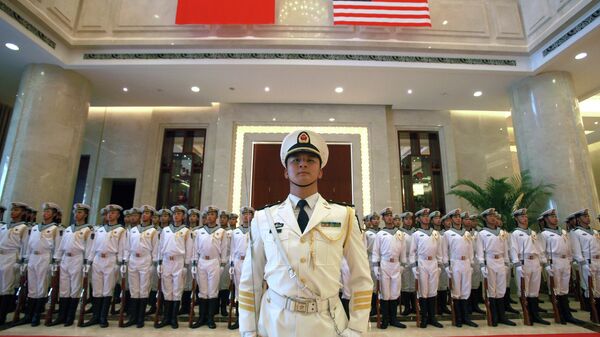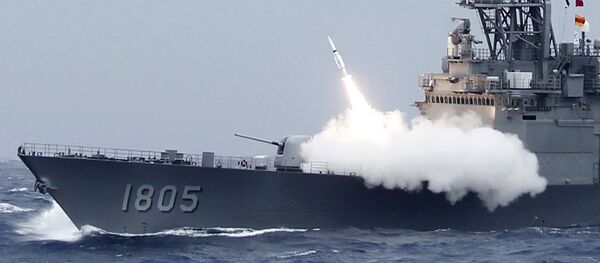BEIJING (Sputnik) — The Chinese and US armed forces are gradually improving confidence-building mechanisms, however, the progress is undermined by Washington's position on Taiwan and the deployment of a Terminal High Altitude Area Defense (THAAD) system in South Korea, told Joseph Dunford, the chairman of the US Joint Chiefs of Staff.
Commenting on the crisis over North Korea, Fan stressed that dialogue and consultations remain the only effective way to resolve the North Korean nuclear problem, adding that military actions were not considered.
"All the parties concerned should exercise restraint in order to avoid escalation of tensions on the [Korean] peninsula. We hope that the United States will work together with China to ensure that all the parties make joint efforts and play a positive role in resolving the DPRK's [North Korea's] nuclear problem as well as in maintaining peace and stability on the Korean Peninsula," Fan stated.
In June, China initiated a road map for the settlement of North Korean crisis, a so-called "double freeze" plan, which outlines a scenario where there is simultaneous cessation of North Korea's nuclear activity and US-South Korean military exercises. The initiative has been been supported by Russia but rejected by the United States.
The relations between the China and the United States have also been complicated by Washington's position on Taiwan, which Beijing has viewed as its breakaway province.
The United States, along with many other countries, does not recognize Taiwan as a sovereign nation and officially sticks to the "One China" policy. Despite this, Washington has kept informal relations with the island nation after severing diplomatic ties with it in 1979. The issue of Taiwan in US-Chinese relations was raised again in December 2016 after then US President-elect Donald Trump had a phone call with Taiwan's President Tsai Ing-wen.




